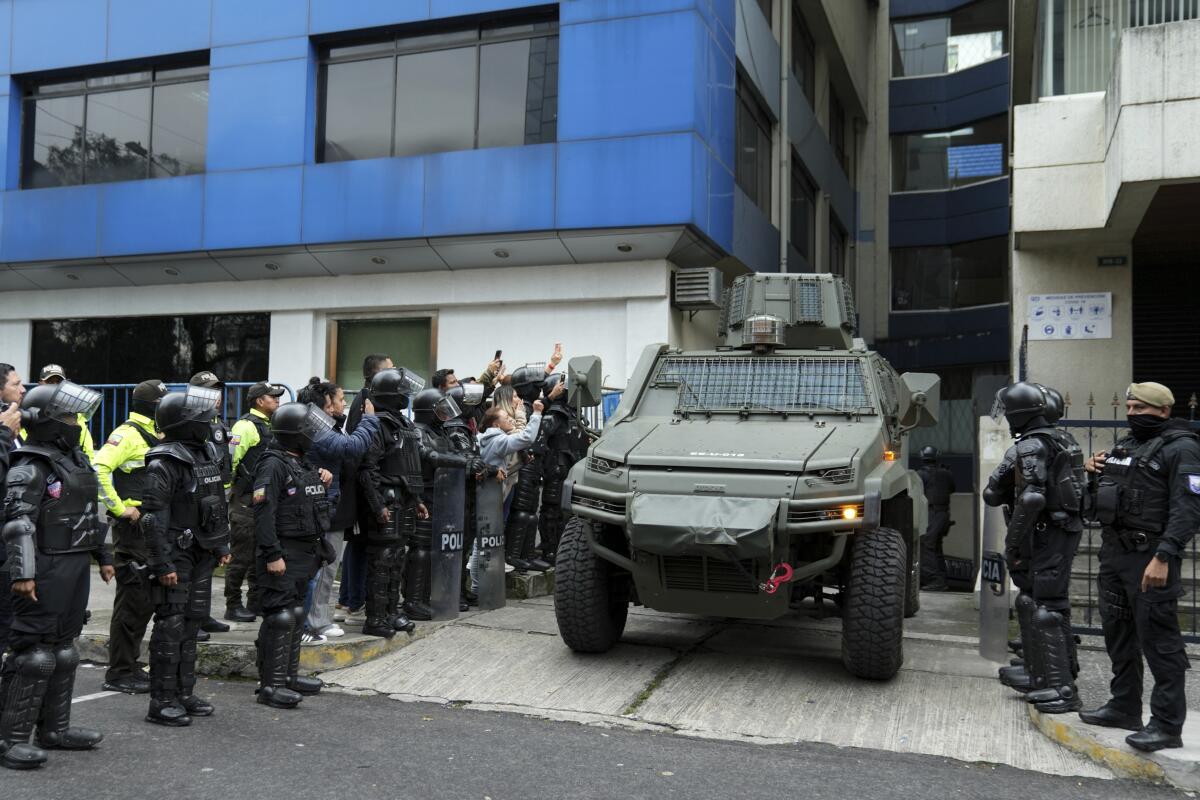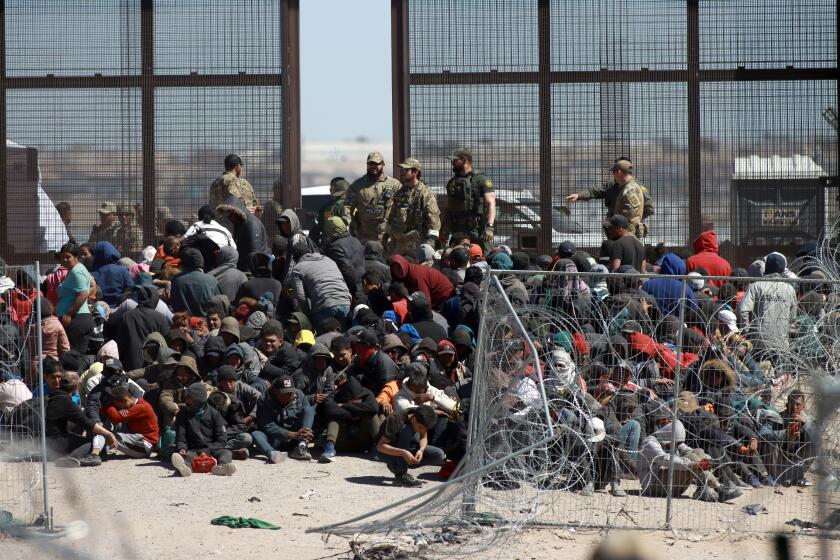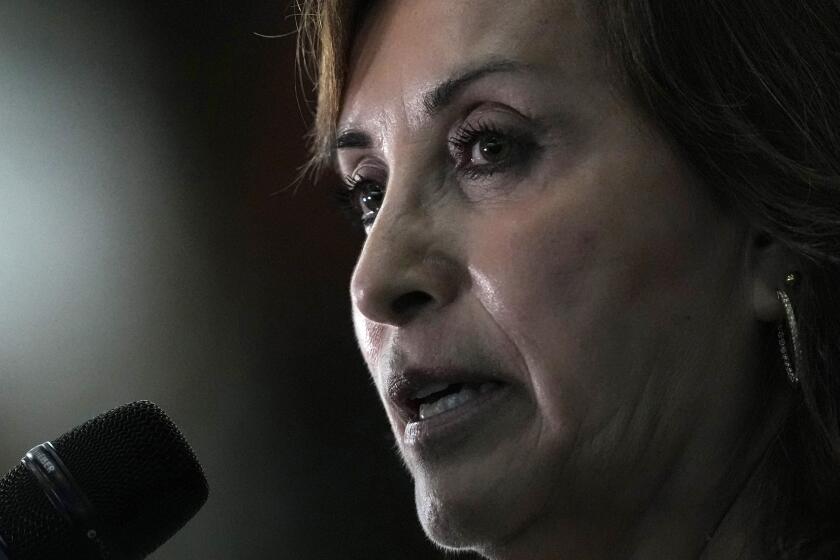Mexico breaks ties with Ecuador after police storm its embassy in Quito to arrest politician

QUITO, Ecuador — Mexico’s government ended diplomatic ties with Ecuador after police broke into the Mexican Embassy to arrest a former Ecuadorean vice president, an extraordinary use of force that shocked and mystified regional leaders and diplomats.
Ecuadorean police broke through the external doors of the embassy in the capital, Quito, late Friday to arrest Jorge Glas, who had been residing there since December. Glas sought political asylum at the embassy after being indicted on corruption charges.
The raid prompted Mexican President Andrés Manuel López Obrador to announce the break of diplomatic relations with Ecuador on Friday evening, while his government’s foreign relations secretary said the move will be challenged at the World Court in The Hague.
“This is not possible. It cannot be. This is crazy,” Roberto Canseco, head of the Mexican consular section in Quito, told local news media while standing outside the embassy right after the raid. “This is totally outside the norm.”
Immigration enforcement has long been the domain of the federal government. Texas is trying to change that.
On Saturday, Glas was taken by armored vehicle from the attorney general’s office to an airport, where he boarded an aircraft for a flight to the port city of Guayaquil, 265 miles south of Quito, where he will remain in custody at a maximum-security prison.
Glas’ attorney, Sonia Vera, told the Associated Press that officers broke into his room and he resisted when they attempted to put his hands behind his back. She said the officers then “knocked him to the floor, kicked him in the head, in the spine, in the legs, the hands,” and when he “couldn’t walk, they dragged him out.”
Vera said the defense team was not allowed to speak with Glas while he was at the prosecutor’s office, and it is working to file a habeas corpus petition.
Authorities are investigating Glas over alleged irregularities during his management of reconstruction efforts following a powerful earthquake in 2016 that killed hundreds of people. He was convicted on bribery and corruption charges in other cases.
Ecuador’s foreign minister, Gabriela Sommerfeld, told reporters Saturday that the decision to enter the embassy was made by President Daniel Noboa after considering Glas an “imminent flight risk” and exhausting all possibilities for diplomatic dialogue with Mexico.
Mexico granted Glas asylum hours before the raid.
Sommerfeld said it is “not legal to grant asylum to people convicted of common crimes and by competent courts.”
After Noboa’s office defended the raid in an earlier statement, saying “Ecuador is a sovereign nation and we are not going to allow any criminal to stay free,” López Obrador fired back. He accused Ecuador of an “authoritarian act” and “a flagrant violation of international law and the sovereignty of Mexico.”
Alicia Bárcena, Mexico’s secretary of foreign relations, posted on the social media platform X that a number of diplomats suffered injuries during the break-in, adding that it violated the Vienna Convention on Diplomatic Relations.
Dina Boluarte testified to prosecutors after authorities said she possesses jewelry including Rolex watches and received cash transfers.
Diplomatic premises are considered “inviolable” under the Vienna treaties and local law enforcement agencies are not allowed to enter without the permission of the ambassador. WikiLeaks founder Julian Assange lived inside the Ecuadorean Embassy in London for seven years because British police could not enter to arrest him.
The Quito raid was condemned by presidents, diplomats and a regional body on Saturday.
Honduran President Xiomara Castro, writing on X, characterized the raid as “an intolerable act for the international community” and a “violation of the sovereignty of the Mexican State and international law” because “it ignores the historical and fundamental right to asylum.”
The Organization of American States in a statement reminded its members — which include Ecuador and Mexico — of their “obligation” to not “invoke norms of domestic law to justify non-compliance with their international obligations.”
The OAS “expressed solidarity with those who were victims of the inappropriate actions that affected the Mexican Embassy in Ecuador,” according to the statement released Saturday. The organization added that it deemed a meeting of its permanent council “necessary to address the issue,” but did not set a date.
Bárcena on Friday said Mexico would take the case to the International Court of Justice “to denounce Ecuador’s responsibility for violations of international law.” She also said Mexican diplomats were only waiting for the Ecuadorean government to offer the necessary guarantees for their return home.
Noboa became Ecuador’s president last year as the nation battled unprecedented crime tied to drug trafficking. After a group of armed individuals assaulted a TV station during a live broadcast in January, he declared the country in an “internal armed conflict” and designated 20 drug-trafficking gangs as terrorist groups that the military had authorization to “neutralize” within the bounds of international humanitarian law.
Will Freeman, a fellow of Latin American studies at the Council on Foreign Relations, said the decision to send police to Mexico’s embassy raises concerns over the steps Noboa is willing to take to get reelected. His tenure ends in 2025 as he was only elected to finish the term of former President Guillermo Lasso.
“I really hope Noboa is not turning more in a Bukele direction,” Freeman said, referring to El Salvador President Nayib Bukele, whose tough-on-crime policies have been heavily criticized by human rights organizations. “That’s to say less respectful of rule of law in order to get a boost to his popularity ahead of the elections.”
Freeman added that whether Glas was abusing diplomatic protection is a “separate issue” from the decision to send police to the embassy.
“We see a pattern of that in Latin America with politicians abusing embassies and foreign jurisdictions, not to flee prosecution but to flee accountability,” he said.
The Mexican Embassy in Quito remained under heavy police guard after the raid.
Vera said Glas’ attorneys fear “something could happen” to him while in custody, considering the track record of Ecuador’s detention facilities, where hundreds have died during violent riots over the last few years. Those killed while in custody include suspects in last year’s assassination of a presidential candidate.
“In Ecuador, going to jail is practically a death sentence,” Vera said. “We consider that the international, political and legal person responsible for the life of Jorge Glas is President Daniel Noboa Azín.”
More to Read
Sign up for Essential California
The most important California stories and recommendations in your inbox every morning.
You may occasionally receive promotional content from the Los Angeles Times.











